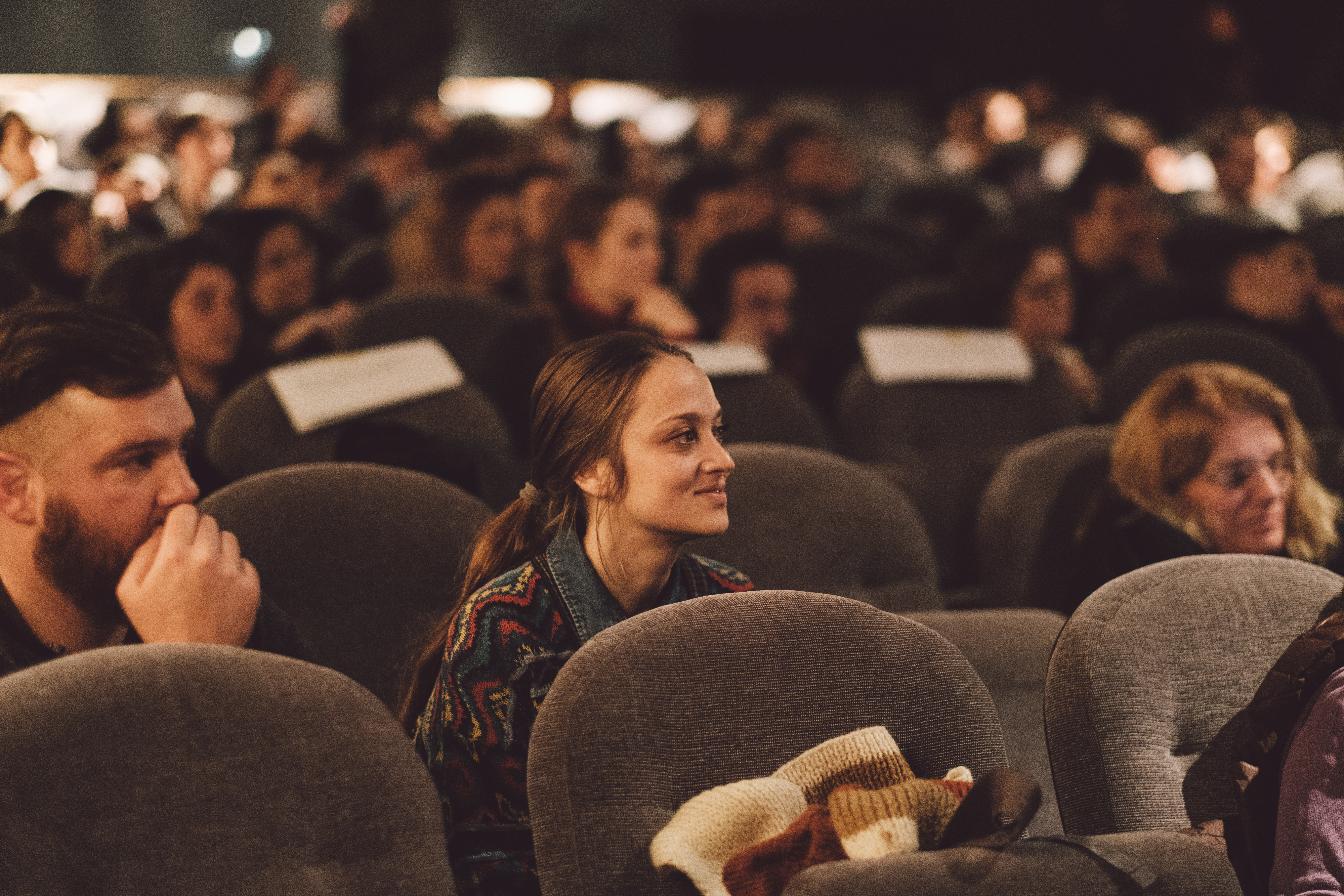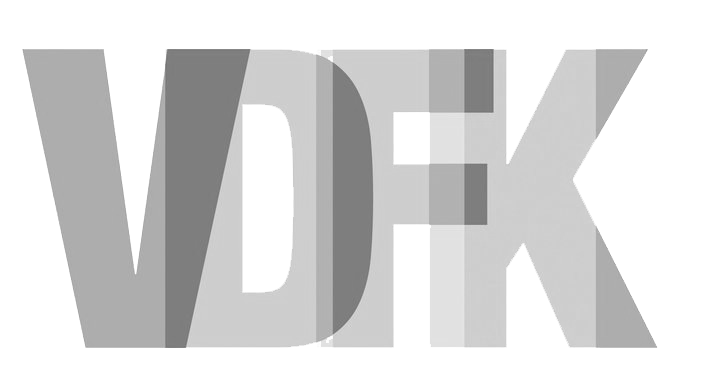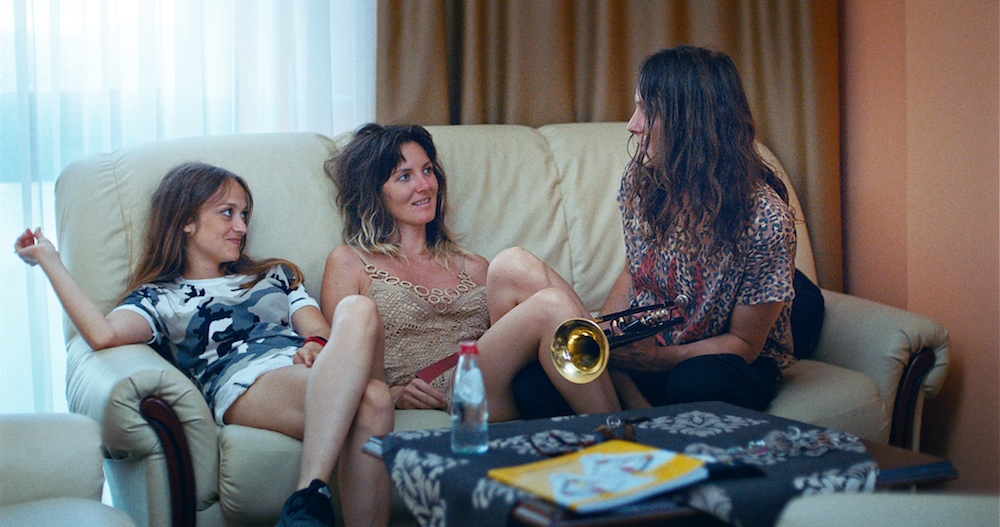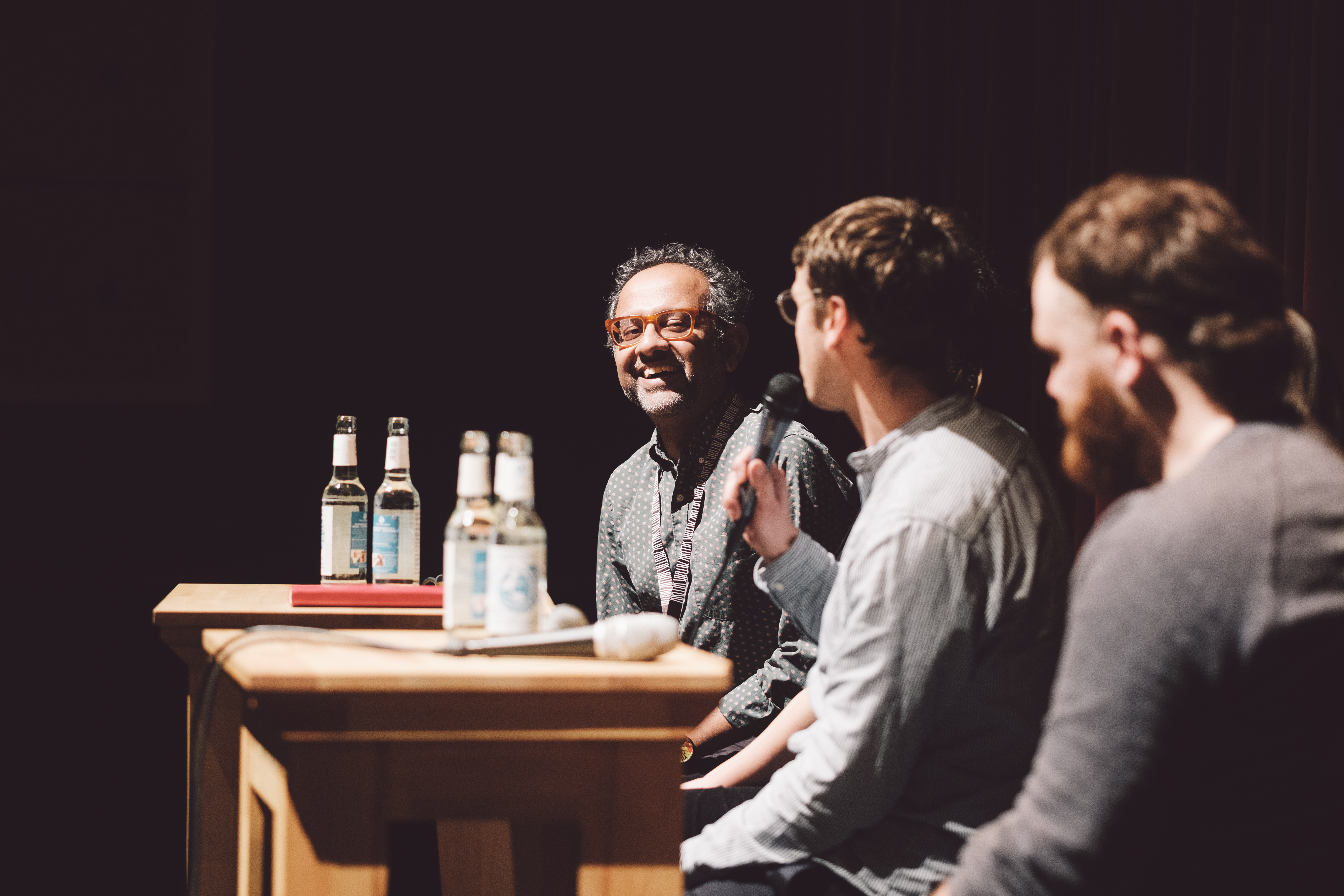Blog #1/20 - Present Continuous
By Anuj Malhotra
[Bordeaux], Ma Bile is, as life often can be, borne out of a process of remarkable sedimentation. A sequence central to the film—and which includes a fluctuation between images from the yellow vest protests in France and those from a privately produced sex tape (or so is the claim)—is in fact, according to Oliver Bassemir, the film’s director, the yield of an accidental “discovery”. To elaborate, he realized that the VHS tapes he intended to deploy for the purposes of shooting his own film featured fragments of the said encounter between lovers, produced sometime before, somewhere else—no clue. It is safe to claim therefore that the material identity of the tape as it exists now is the result of a gradual, generational accumulation; things, events, and places deposited onto its surface, over time, from here or there, now or then, made coherent by the fact of their existence on this single tape—if not a concurrence, then a cohabitation. But why is this important to our discourse?

The two films selected to inaugurate the current edition of the Berlin Critics’ Week render material the interior selves of their protagonists (the directors of the films themselves; they agitate, agitate against, agitate within). In both of these titles, their identities—as they exist now—are the result of an incredible, incremental assimilation. In Ivana Mladenović’s Ivana the Terrible, a diverse set of impulses— primal, nationalist, feminine, familial, filmic—forge and form her self in front of our eyes (in Berlin, they say, “to go”; hers is an identity “to go”). The film therefore emerges as a record (much like Bassemir’s) of the process of making, remaking, re-remaking, and making anew, in the present continuous. The protagonist in [Bordeaux] must let the city embody his own being (the title is a sign): in it, too, forces of homogenization and the subscription to a global “way of being” threaten to absorb forever the center of the city, while its suburbs, the outskirts, and the edges continue to remain provincial, organic, identifiable. The city is—as is its director—in a state of constant upheaval, as gratuitous deposits of new ideas, stimuli, events, and incidents continue to be laden onto it. At set intervals of time, the film devolves into static, an indication that a collapse is imminent, the pressure is too much, the body cannot take it anymore.
And then suddenly, there is a rupture.
In both cases, it is induced through a text superimposed on the screen. In the case of Ivana the Terrible, a sudden message (“In the loving memory of Anca Pop”) and within [Bordeaux], Ma Bile, an admonition (“fuck you”)—both incite an artificial closure, an end, the end. And insofar as the films are life-studies of individuals who are in flux, it’s an indexation—a filing of their current version, which is in no way absolute or immune from further updates, but in the future, not now.
The tape has run out, but it may be recorded over, who knows.
A debate follows the film. Its title is abject, but apt for this coupling: “auto agitation”. The layout is telling. In the middle, a referee (Nino Klingler); in the blue corner, the critic (Girish Shambu) and the curator (Dorota Lech); in the red, the filmmakers. The discussion begins in earnest, but swiftly, a regime of prescribed vocabulary, verifiable statistics, historical details, and easy labels is installed to try and “fix” the filmmakers, their identities, the films, their meanings, and what these “reveal” to the audiences about the protagonists, but also about the larger struggles of history. Lech attempts to nuance the discussion. She offers, “…but I think the filmmakers are definitely allowed to make art for art’s sake…”, but this thread is abandoned quickly. It feels like a series of gross reductions to me: Mladenović is a woman, certainly, but she is not only that; Bassemir is angry, but among other things. Their films are demonstrations, first and foremost, of the shape of their own beings—the iconic can wait.


